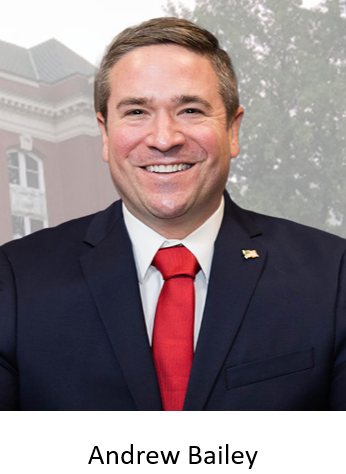Education Briefs
Florida’s sensible Parental Rights in Education Act, signed into law by Governor Ron DeSantis in April 2022, will stand, according to a March 11 press release from the governor’s office on the final court ruling. Despite endless attacks by liberal forces, including the mainstream media, the lawsuit against the measure failed, awarding DeSantis and the parents’ rights movement a major victory. The Florida chapter of the Parental Rights Foundation supported the bill as it wound its way through the legislative process, but immediately upon its passage, LGBT advocacy groups filed suit against it, alleging that it was “an unlawful attempt to stigmatize, silence, and erase LGBTQ people in Florida’s public schools.” An email from the Foundation to its supporters says the the state “has agreed to issue a notice to school districts clarifying that the law applies to classroom instruction but does not prohibit other mentions or discussions related to gender identity. In exchange, the litigants have agreed to drop their appeal, which has been before the U.S. Court of Appeals for the 11th Circuit for more than a year.” The plaintiffs also acknowledged in the settlement that “the law does not violate the Constitution and that First Amendment rights were never at risk.” While the law’s opponents insist the settlement rolls it back in large part, the original language remains in place and unaltered. Currently, parents’ rights bills have either passed or are at various legislative process stages in in 32 states, despite insistence by the Left that such rights must be curtailed or eliminated. Concerned Florida parents will need to remain vigilant that the law they helped enact continues to be upheld in the state’s government schools.
a major victory. The Florida chapter of the Parental Rights Foundation supported the bill as it wound its way through the legislative process, but immediately upon its passage, LGBT advocacy groups filed suit against it, alleging that it was “an unlawful attempt to stigmatize, silence, and erase LGBTQ people in Florida’s public schools.” An email from the Foundation to its supporters says the the state “has agreed to issue a notice to school districts clarifying that the law applies to classroom instruction but does not prohibit other mentions or discussions related to gender identity. In exchange, the litigants have agreed to drop their appeal, which has been before the U.S. Court of Appeals for the 11th Circuit for more than a year.” The plaintiffs also acknowledged in the settlement that “the law does not violate the Constitution and that First Amendment rights were never at risk.” While the law’s opponents insist the settlement rolls it back in large part, the original language remains in place and unaltered. Currently, parents’ rights bills have either passed or are at various legislative process stages in in 32 states, despite insistence by the Left that such rights must be curtailed or eliminated. Concerned Florida parents will need to remain vigilant that the law they helped enact continues to be upheld in the state’s government schools.
Chinese American activist and patriot Xi Van Fleet, who escaped the Maoist purge in Communist China during the 1980s and became a U.S. citizen, recently posted on X (Twitter) how American Marxists are taking propaganda from the classroom into public spaces such as the Dulles International Airport. The exhibit Van Fleet described “is all about the 1st Amendment, how students have the right not to say the pledge, not to salute the American flag, to wear  the hijab, to walk out or sit in, to protest, to take off a day from school for political events, to become little lobbyists, to be able to curse schools in social media, to demand funding for teen moms,” etc. In short, she wrote, “it is about showing kids how to become revolutionaries to overthrow the system using their Constitutional rights.” Her post explains that such demonstrations are “how Communists use Constitutional rights to destroy the Constitution. In [Saul] Alinsky’s words: ‘Make the enemy live up to its own book of rules.’” One respondent to Van Fleet’s post observed that the premise of the display at Dulles “is convoluted. The Constitution was meant to restrict government, not grant rights. This country’s citizens possess inalienable rights from God. There is no God in DC, or the Federal government.” Another commenter noted: “The message is [intended] to influence us in the direction they want to drive us. Everything has a purpose with these people. They marry truth (you have free speech), to a lie (use it to rebel) ....” In March 2023, Education Reporter highlighted Van Fleet’s first-person experiences as a survivor of the “Chinese Cultural Revolution,” and her resultant dedication to the preservation of liberty in her adopted country. Last October, her book, Mao’s America: A Survivor’s Warning, written to sound the alarm about the dangers America faces, was published by Hachette Book Group.
the hijab, to walk out or sit in, to protest, to take off a day from school for political events, to become little lobbyists, to be able to curse schools in social media, to demand funding for teen moms,” etc. In short, she wrote, “it is about showing kids how to become revolutionaries to overthrow the system using their Constitutional rights.” Her post explains that such demonstrations are “how Communists use Constitutional rights to destroy the Constitution. In [Saul] Alinsky’s words: ‘Make the enemy live up to its own book of rules.’” One respondent to Van Fleet’s post observed that the premise of the display at Dulles “is convoluted. The Constitution was meant to restrict government, not grant rights. This country’s citizens possess inalienable rights from God. There is no God in DC, or the Federal government.” Another commenter noted: “The message is [intended] to influence us in the direction they want to drive us. Everything has a purpose with these people. They marry truth (you have free speech), to a lie (use it to rebel) ....” In March 2023, Education Reporter highlighted Van Fleet’s first-person experiences as a survivor of the “Chinese Cultural Revolution,” and her resultant dedication to the preservation of liberty in her adopted country. Last October, her book, Mao’s America: A Survivor’s Warning, written to sound the alarm about the dangers America faces, was published by Hachette Book Group.
The Tuttle Twins recently made their political debut in the South Carolina legislature with their Season 2, Episode 8 educational cartoon titled Spooky, Stinky Subsidies. Author Connor Boyack described in a March 18 email: “In this episode, [twins] Ethan and Emily, along with the sage Ludwig Von Mises, find themselves navigating a literal spooky landscape—a ghoulish metaphor for the distorted, murky market environments often created by sometimes well-intentioned but ultimately harmful subsidies.” The point of the cartoon is to show how subsidies “not only fail to level the playing field but actively corrupt it, creating environments where businesses rely on government favor rather than customer satisfaction to succeed,” in terms even kids can understand. State Representative Robert J. (RJ) May (R-Lexington) introduced the cartoon during debate over a $2 million film commission subsidy for an ongoing program filmed in South Carolina called “Righteous Gemstones.” May said he had no problem with the show, but rather with “the manipulation of the free market and whether or not we should rely on central planning from this body and this building, or whether we should allow the free market to determine the winners and losers ... The free market often breeds success and innovation,” he said, “and often at a lower cost.” His opponent defended the subsidy, reasoning that the film company could take their dollars to another state. May again disagreed, citing a study by the University of Southern California Sol Price School of Public Policy that shows such subsidies are often a bad investment, with little return for the millions of tax dollars invested. “On average,” May said, “the only advantage [according to the study] was a short-term wage gain, and market share in the industry didn’t budge.” He then invited his opponent and the audience to Google and watch on YouTube the Tuttle Twins cartoon “if you have questions about what subsidies mean and how they manipulate the market.” When roundly criticized for getting his information “from a children’s cartoon,” May quickly retorted that no, he knew what subsidies were, but since his fellow representative seemed to be struggling with understanding how subsidies aren’t part of a free market, a cartoon that distills these important ideas into kid-friendly terms was perhaps a good place to start. Fans wonder if the commonsense educational value of the Tuttle Twins’ books and cartoons may earn them another shout out in another state legislature one day soon.
how subsidies “not only fail to level the playing field but actively corrupt it, creating environments where businesses rely on government favor rather than customer satisfaction to succeed,” in terms even kids can understand. State Representative Robert J. (RJ) May (R-Lexington) introduced the cartoon during debate over a $2 million film commission subsidy for an ongoing program filmed in South Carolina called “Righteous Gemstones.” May said he had no problem with the show, but rather with “the manipulation of the free market and whether or not we should rely on central planning from this body and this building, or whether we should allow the free market to determine the winners and losers ... The free market often breeds success and innovation,” he said, “and often at a lower cost.” His opponent defended the subsidy, reasoning that the film company could take their dollars to another state. May again disagreed, citing a study by the University of Southern California Sol Price School of Public Policy that shows such subsidies are often a bad investment, with little return for the millions of tax dollars invested. “On average,” May said, “the only advantage [according to the study] was a short-term wage gain, and market share in the industry didn’t budge.” He then invited his opponent and the audience to Google and watch on YouTube the Tuttle Twins cartoon “if you have questions about what subsidies mean and how they manipulate the market.” When roundly criticized for getting his information “from a children’s cartoon,” May quickly retorted that no, he knew what subsidies were, but since his fellow representative seemed to be struggling with understanding how subsidies aren’t part of a free market, a cartoon that distills these important ideas into kid-friendly terms was perhaps a good place to start. Fans wonder if the commonsense educational value of the Tuttle Twins’ books and cartoons may earn them another shout out in another state legislature one day soon.
Missouri attorney general Andrew Bailey is cautioning school districts around the state to “immediately cease discriminatory practices against students and staff.” Bailey communicated his warnings in separate letters to three school districts specifically, although the implication is that there are potentially additional guilty parties. The districts targeted are all in St. Louis County: the  Lindbergh School District, the Parkway School District, and the Webster Groves School District. Specific to the Lindbergh District, Bailey wrote: “the district has instituted race-based criteria for students seeking to enter the gifted program. According to reports my office has received, the program’s traditional pathway to entry requires a student to score in the 95th national percentile on at least one screener or standardized test (math or reading) and in at least the 85th percentile on the other. Alternatively, students who are part of an underrepresented racial or ethnic population in the district are only required to achieve standardized test scores in the 84th percentile on one test (math or reading) and in the 50th percentile on the other before being considered for additional testing. The district’s policy states that its goal is to reach a 20% equity index for underrepresented student populations. If these reports are true, Lindbergh School District is discriminating on the basis of race, in direct violation of both state and federal law.” In the Parkway District, reports indicate students are prevented from forming “religious-based” clubs, such as the Fellowship of Christian Athletes, which includes prevention from hanging posters, making announcements, or holding meetings on campus. In Webster Groves, “race-based criteria for its employees and applicants” has reportedly been introduced. Bailey has ordered each of the three districts to immediately cease and desist their allegedly discriminatory practices, with the promise that he will use his full authority under the law to ensure Missouri students and staff are free from such treatment. The district-specific letters may be viewed here.
Lindbergh School District, the Parkway School District, and the Webster Groves School District. Specific to the Lindbergh District, Bailey wrote: “the district has instituted race-based criteria for students seeking to enter the gifted program. According to reports my office has received, the program’s traditional pathway to entry requires a student to score in the 95th national percentile on at least one screener or standardized test (math or reading) and in at least the 85th percentile on the other. Alternatively, students who are part of an underrepresented racial or ethnic population in the district are only required to achieve standardized test scores in the 84th percentile on one test (math or reading) and in the 50th percentile on the other before being considered for additional testing. The district’s policy states that its goal is to reach a 20% equity index for underrepresented student populations. If these reports are true, Lindbergh School District is discriminating on the basis of race, in direct violation of both state and federal law.” In the Parkway District, reports indicate students are prevented from forming “religious-based” clubs, such as the Fellowship of Christian Athletes, which includes prevention from hanging posters, making announcements, or holding meetings on campus. In Webster Groves, “race-based criteria for its employees and applicants” has reportedly been introduced. Bailey has ordered each of the three districts to immediately cease and desist their allegedly discriminatory practices, with the promise that he will use his full authority under the law to ensure Missouri students and staff are free from such treatment. The district-specific letters may be viewed here.
Want to be notified of new
Education Reporter content?
Your information will NOT be sold or shared and will ONLY be used to notify you of new content.
Click Here
Return to Home Page
